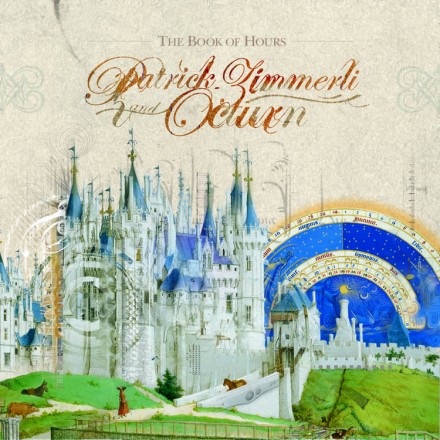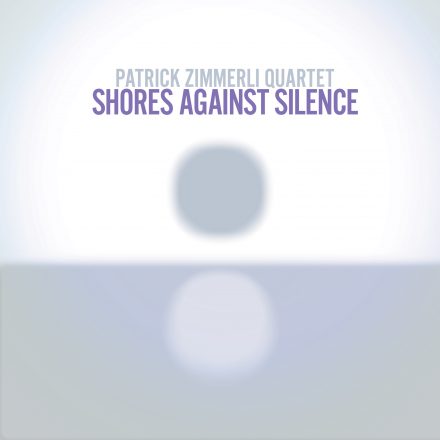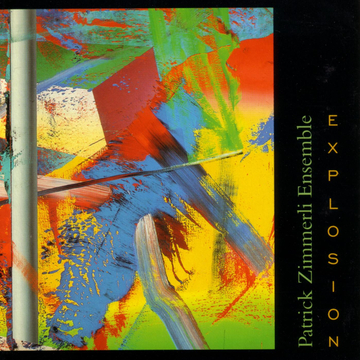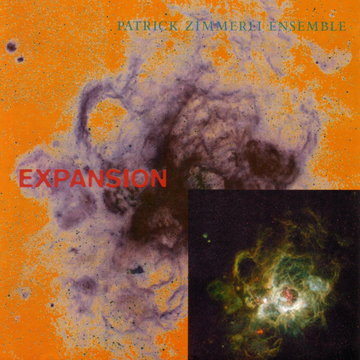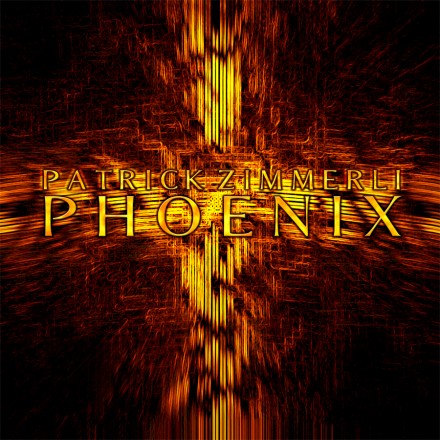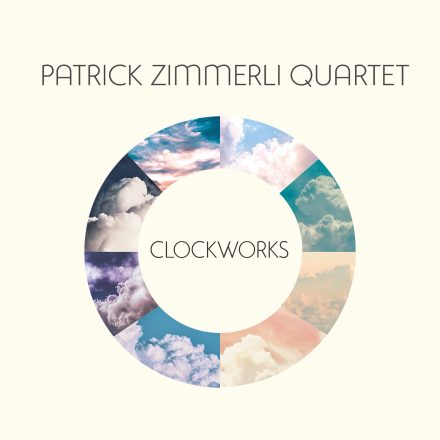Patrick Zimmerli & Octurn
The Book of Hours
SGL 1541-2Patrick Zimmerli is one of the most unusual jazz composer/saxophonists around. For his third Songlines release he teams up with the 10-piece Belgian band Octurn for an hour-long jazz suite whose movements represent different times of the day. From the rolling, earth-awakening Dawn to the Euclidian angularity of the strikingly noble Noon and frenetic Afternoon, and on to the calmer late-day periods and the dreamtime wrap-up of Sleep, the suite traverses a broad emotional continuum. Setting off the journey is a series of short chamber-jazz interludes in a contemplative mood, building from duet to sextet. At times reminiscent of everything from Stravinsky ballet music to the horn-driven shouts of the rock band Chicago, charged by Octurn’s remarkable double rhythm section, and featuring strong solos by the band, Zimmerli, and guest artist Ben Monder, The Book of Hours is a treasure-house of brilliant orchestral ideas, layered sonorities, and involving polyrhythms, all in the service of an original creative vision.
Born (1968) and raised in the New York area, Patrick Zimmerli received his BA in literature and music composition and a DMA in Composition from Columbia University. He studied saxophone with Joe Lovano, and has worked with jazz notables T.S. Monk, Kevin Hays, Bill Stewart, and Don Sickler. In 1993 he won the first annual BMI/Thelonious Monk Institute Composers’ Competition, and in 1995 he directed the InstituteÕs Jazz Ambassadors, a quintet of past winners that toured Africa (CD on Jazz City). His own CDs include two with his Ensemble, Explosion (SGL 1508, 1995) and Expansion (SGL 1530, 2000), and Twelve Sacred Dances (commissioned by the Jazz Composers Collective; Arabesque, 1998). Among his more than 100 compositions are two piano concertos (both premiered by the Metamorphosen Chamber Orchestra and to be recorded by them); a string quartet; Concerto for Tenor Saxophone and Orchestra; and Waves, commissioned and recorded by the French jazz ensemble Kartet. He received the 2003 Gil Evans Fellowship Commission for a work for big band, to be premiered at the IAJE Annual Convention in Toronto in January 2003. The same month the Seattle Chamber Music Festival will premiere his Piano Trio. Zimmerli is also active in New York’s commercial music scene, and co-composed and orchestrated the music for the feature film The Deep End. Watch for concerts by his new performing group, Phoenix, consisting of saxophone, piano, string quartet, electric bass, and percussion/electronics.
Octurn, a Brussels-based collective led by Bo Van der Werf that also features outstanding French and Dutch performers, came together in 1992 and has released 4 CDs on the W.E.R.F. label (www.dewerf.be). The band has always been open to influences from beyond jazz (Frederic Rzewski commissions are included on two of its CDs), and has taken various forms over the years. For its latest incarnation, the double rhythm section project, Octurn commissioned The Book of Hours from Zimmerli and toured it with him throughout Belgium in November-December 2000. The other compositions for this project are by Bo Van der Werf, Geoffroy De Masure, and Antoine Prawerman, and can be heard on their CD Dimensions; these pieces often expand on M-Base concepts, with polyrhythmic beats and funky bass lines, but also work with ideas from big band swing, bop, jazz-rock, and contemporary classical music.
****1/2 “…should appeal to a broad spectrum of jazz listeners from straight-ahead to avant-garde…The album presents music of great beauty and melodicism; Zimmerli employs often bright and crisp colors and textures (fully realized here by the ten likeminded musicians of Octurn), and there is also a warmth that suggests the post-Gil Evans approaches of a composer like Maria Schneider. In short, The Book of Hours is engaging and accessible throughout…Listeners with a non-traditional streak should find favor in the polyphonic complexity of Zimmerli’s scores, which disguise and embellish head-solos-head structures in unconventional ways (the canon-like ‘Interlude’ segments have a particularly strong classical influence…). Thematic material (signifying the many moods of a passing day) is stated and restated in variation as soloists enter and exit against an always surprising and involving backdrop – this is music that could keep even the most dedicated avant-gardist on his or her toes with its constantly evolving permutations…Zimmerli’s music can be bold, energetic, and propulsive (‘Night’), yet it often maintains a subtle and understated quality; even the seemingly highly improvised dialogue between baritone saxophone and percussion on ‘Noon’ suggests a conversation rather than a shouting match. As for Zimmerli the saxophonist, his soprano solo on the lovely ‘Sleep’ that concludes the disc is a thing of true beauty and one of the album’s most striking improvisational moments, even as the piece tends to calm rather than excite the listener’s heart.” — Dave Lynch, Allmusic.com
“The Book of Hours is a 56-minute jazz suite, referencing a medieval monastic tradition when a different prayer was said at seven different times of the day…Moving faultlessly through a variety of time signatures, harmonies, melodies and compositional colors, the band members play their parts seemingly without a note out of place…Zimmerli has taken the outlines of a pious ceremony and used compositional alchemy to make the multi-movement suite both secular and energetic. By the same token he hasn’t let the ensemble’s (in this case) two drummers, two electric guitarists and two electric bassists force the sounds into a harder fusion mold. Instead his Book of Hours seems to be ticking away somewhere near the time when cool was born. Among the themes are four small group contrapuntal interludes which allude to John Coltrane’s ‘A Love Supreme.’ Featuring no more than fleeting recapitulations of the famous riff, they add to the suite’s reverent quality.” — Ken Waxman, Jazzweekly.com
